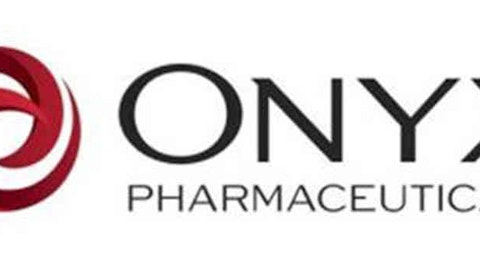Recently Onyx Pharmaceuticals, Inc. (NASDAQ:ONXX) rejected a $10 billion takeover offer from Amgen, Inc. (NASDAQ:AMGN). However, after that it hired an investment banker for finding a suitable buyer. With three cancer drugs in its portfolio, Onyx is an attractive takeover target for many larger biotechs. Investors want to consider if another offer or two is upcoming, and what that might do to the stock’s price.
What Amgen wanted to buy
Amgen, Inc. (NASDAQ:AMGN) had offered to pay $120 for a share, a hefty 38% premium on its prevailing market price. Shares of Onyx Pharmaceuticals, Inc. (NASDAQ:ONXX) started rising in after-hours trading after the offer was rejected , and the next day the price shot up more than 50%.
Biotechnology analyst Robyn Karnauskas of Deutsche Bank thinks that Onyx Pharmaceuticals, Inc. (NASDAQ:ONXX) could fetch as much as $148 a share because of the immense importance of its cancer drugs.
Onyx Pharmaceuticals, Inc. (NASDAQ:ONXX) sells Nexavar (sorafenib), approved for advanced kidney cancer and unresectable liver cancer, in partnership with Bayer. It also sells Bayer’s Stivarga (regorafenib) in the US, which was approved last year for treating colorectal cancer – and gets royalty on global sales.
However, the most coveted drug in Onyx Pharmaceuticals, Inc. (NASDAQ:ONXX)’s portfolio is the one that is fully owned by it – Kyprolis (carfilzomib). Kyprolis, a proteasome inhibitor, was approved in July last year for treatment of multiple myeloma in patients who have received at least two prior therapies. The drug contributed $64 million to the company’s revenues in the most recent quarter.
Potential Buyers
Bayer, with whom Onyx has an ongoing relationship, could be a possible buyer. Annual sales of Nexavar are to the tune of $861 million, which could potentially increase by another couple of hundred millions if it is approved for thyroid cancer. However, if Bayer were to buy Onyx it would have already done so a long time back. Onyx’s other partner Pfizer Inc. (NYSE:PFE) however is a more credible buyer.
Onyx has been developing palbociclib for treatment of breast cancer in collaboration with Pfizer Inc. (NYSE:PFE). The drug is being evaluated since 2004 and is currently in Phase III clinical trials. If Pfizer buys Onyx, it will amount to a considerable saving for the company as it is committed to making a milestone payment and 8% royalty on global sales to Onyx if it markets palbociclib. The drug has the potential of generating $2 billion in revenue and could hit the market by 2015.
Celgene Corporation (NASDAQ:CELG) is another buyer that could be interested in buying Onyx. Recently Celgene and MorphoSys AG, a German company based in Munich, entered into a strategic alliance whereby Celgene Corporation (NASDAQ:CELG) gets worldwide rights to MOR202, MorphoSys’ experimental drug for treatment of multiple myeloma. Celgene will pay $92 million upfront as license fee and will acquire 60 million shares of MorphoSys AG. With this and Kyprolis, Celgene could become a major player in the multiple myeloma market.
Onyx from the investor’s point of view
Given the right price, Onyx could be fit for any of the large pharmaceutical companies as well as companies focused on cancer treatment. The stakes are high as Big Pharma is struggling with patent expirations. Cancer drugs command extremely high prices – in fact, more than 100 leading cancer specialists denounced the “astronomical” cost of treating cancer indicating that drug manufacturers were engaged in unethical profiteering.
However, investors need to look at the other side of the coin before they put a value to Onyx’s existing and expected future portfolio.
Any buyer would be wary of putting an inordinate value to the jewel in Onyx’s crown – Kyprolis – as it has not been granted full approval. It was given an accelerated approval, which is granted to drugs that address a real medical need. Such approvals may be cancelled if the drug fails in larger trials. Since results of two trials of Kyprolis are due later this year, any potential buyer would prefer to wait before bettering Amgen’s offer of $10 billion.
Although it is widely believed that Kyprolis will pull through for expanded use, there are concerns about its safety in regard to its effect on cardiovascular health. Cancer physicians already have an alternative in the shape of Takeda’s Velcade ( Bortezomib), the first therapeutic proteasome inhibitor to be approved in the U.S. for treating relapsed multiple myeloma.
The other issue is with the antitrust law. Pfizer already has a drug for kidney cancer – Sutent. If it wants to buy Onyx and bypass antitrust issues, it will have to sell Onyx’s rights to Nexavar to Bayer and retain only palbociclib and Kyprolis. While the former is still in late stage trials, the issues with Kyprolis have been outlined above. Celgene too would have to struggle with antitrust laws as it already has multiple drugs for multiple myeloma.
If I was to buy Onyx at this point, I would keep in mind that the price that Amgen offered – $120 – was arrived at after due diligence. The surge in Onyx stock price is simply market hysteria and I would not buy at this price.
The article Who Could Buy Onyx and at What Price? originally appeared on Fool.com and is written by Kanak Kanti.
Dr. Kanak Kanti De has no position in any stocks mentioned. The Motley Fool recommends Celgene. Kanak is a member of The Motley Fool Blog Network — entries represent the personal opinion of the blogger and are not formally edited.
Copyright © 1995 – 2013 The Motley Fool, LLC. All rights reserved. The Motley Fool has a disclosure policy.




